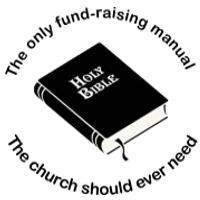Stewardship is a core Christian practice rooted in scripture. The Bible offers a commentary on human stewardship that begins with God’s purpose in setting our first ancestor in the garden “to till and keep it,” and ends in the new creation, in a recurring pattern of crisis and resolution. That pattern of human crisis and divine resolution flows through the Bible — in the creation, in the covenant with Abraham, in the law, the prophets and the writings of the Hebrew scripture, in the life of Jesus, and in the continuing life of his disciples after the resurrection.

Stewardship is a response to the mission of God. When we invite persons into discipleship and baptize, we also invite them into the practices of faithful stewardship. Those practices are properly framed in terms of whether or not they contribute to what God desires in and for the life of the world.
The parable of the two sons opens up a stewardship crisis for leaders among the baptized. When we have turned inward to focus on our wants and needs, when we have used the language of stewardship to address our own religious agenda instead of God’s mission, when we have reduced the challenge of stewardship to servicing the existence, program and practices of the church, then we have squandered the treasure of God in a far country.
Will we make use of resources entrusted to us to serve God’s mission?
For Canadian Anglicans, no faithful conversation about stewardship can be undertaken without consideration of the Baptismal Covenant and the Marks of Mission of the Anglican Communion. The former is, like the “Rule of Life” that preceded it in the Catechism of the Book of Common Prayer, (p. 544) a framework for faithful personal participation in the mission of God. And the Marks of Mission form a framework for faithful corporate participation in that mission. The Resources for Mission Department works in partnership with dioceses to foster a generous sense of stewardship across the Canadian Church.

The Marks of Mission complement and support the principles and practices of the Baptismal Covenant with a commitment to shape our common life in alignment with the mission of God., Beginning with “the Good News of the Kingdom” they offer a set of shared practices that include inviting people to inhabit that Kingdom through baptism, and to enact the Kingdom’s ethos in response to human need, in a commitment to justice, in care for creation and in reconciliation and peace-making.
God sets out in mission to make all things new. It is God’s mission to transform persons, to redeem us and restore us to joyful and useful participation in God’s work. It is God’s mission to transform the church as well, to redeem and restore our common life so that we might live as stewards of God’s abundant gifts, and invite others into that stewardship – for the sake of the world God loves.
This document was approved as a theological rationale for the work of the Resources for Mission Department of General Synod by the Standing Committee on Philanthropy.


